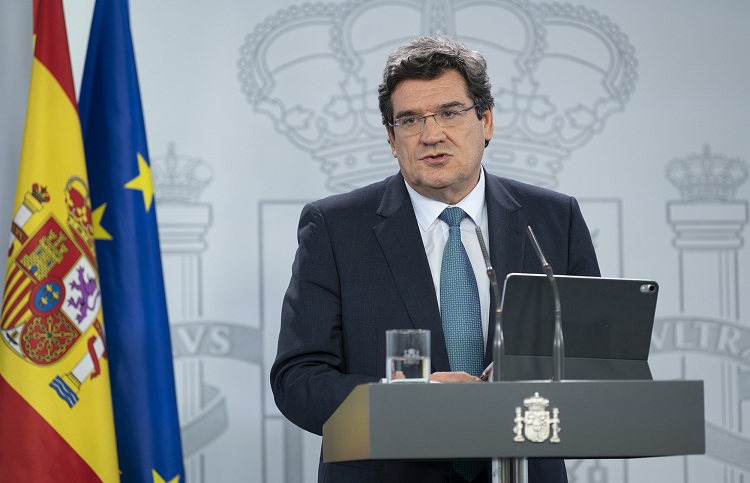Ángel Collado
The pension system, technically bankrupt since before the pandemic, is a serious threat to the stability of the government and Pedro Sánchez’s plans to avoid major economic reforms that would cause him personal damage.
Last week he signed a “no reform” agreement on pensions with employers and trade unions to pretend to be tackling the problem, but his minister for social security, José Luis Escrivá, dismantled his image operation by confessing that aspiring retirees will have to get used to the idea of working more years and/or receiving less in the future. None of this was in the agreement, but it was in the commitments with Brussels to curb the public deficit and in the overwhelming data on Spanish demographics.
The head of the Executive had managed to delay for a few months the public debate and the specifics on the key issue of the pending reform: the new mechanism of “intergenerational equity” with which to replace the old principle of sustainability established in the time of the PP (2013), which he has repealed.
By one name or another, it will be adjustments or cuts. He leaves it until the end of the year. He preferred to pose at La Moncloa Palace with the social partners for an agreement on minor issues such as measures against early retirement and to avoid the Toledo Pact, the parliamentary forum of consensus of all the political forces where the problem of the future of pensions has been worked on until now.
The government’s manoeuvres are due to its extreme parliamentary weakness in tackling any economic change that has a cost of general unpopularity. The PSOE’s allies and partners, the far-left Podemos populists and the pro-independence groups, would not support it in an effective pension cut and the alternative of seeking state pacts with the centre-right, in the face of this or any other problem, is always ruled out by Sánchez.
Escrivá, the only head of the coalition cabinet who is an expert on the subject of his ministry, had been trying out measures to make the pension system viable for a year. Even the increase in the number of years of contribution for the final calculation of the benefit was rejected by the members of the government itself. These proposals were also in line with those required by Brussels to curb the runaway deficit that threatens the Spanish economy. Pensions are no longer covered by social security contributions and the government is resorting to taxes to support the system.
The minister has made an exercise of unusual sincerity and clarity to the chagrin of his boss: the so-called “baby-boom” generation in Spain has to think about working longer and receiving lower pensions than expected. Almost 11 million citizens are affected by the warning: those born between 1958 and the mid-1970s.
Sánchez has bought time this month by postponing before Brussels and public opinion (until Escrivá came clean) his concrete formula for this “intergenerational equity” that would guarantee the viability of the pension system. But the problem for the Prime Minister is once again one of political timing.
Although he wants to avoid fundamental changes before the next elections, European aid for economic reactivation is conditional precisely on progress in economic reforms such as that of pensions. And these payments are made every six months, in principle between this month and the end of 2023, just when the legislature comes to an end.
The President of the Government is trying to postpone all the major pending economic issues, including labour legislation, but the massive baby-boom retirements will catch him just before the next elections. Most of those born in 1958 will be retiring in 2023, with the government still waiting to receive the last instalment of European aid.







